Author: Fu Xiaoge
Translated by: Wu Xia
On February 6, the Hubei Provincial Department of Human Resources and Social Security and the Hubei Provincial Health and Health Committee issued an announcement, deciding to reward the director of Jinyintan Hospital Dr. Zhang Dingyu and Dr. Zhang Jixian, the first to report the epidemic.
Zhang Jixian is an alumnus of Wuhan University, year 1989 clinical medicine. As the director of the Department of Respiratory and Critical Care Medicine of Hubei Province Integrated Traditional Chinese and Western Medicine Hospital (Xinhua Hospital), she first reported the patient with the new coronavirus pneumonia. Why was she the first person to report the epidemic?
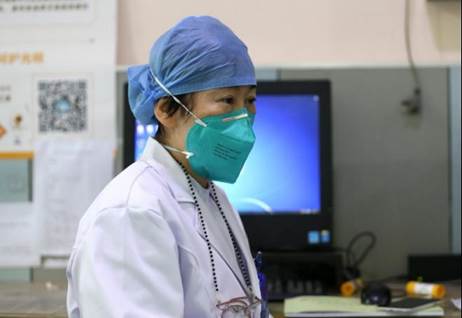
"I feel like I’m doing the right thing"
The matter goes back to December 26, 2019. A pair of old couples in the neighborhood came to the hospital for treatment, thinking that it was just a common fever and cough. The chest CT film was completely different from other viral pneumonia.
On the morning of December 27, 2019, Zhang Jixian saw the chest CT scan, and quickly asked the old couple to call her son to the hospital for an examination. Their son did not have any symptoms such as fever or cough, but the CT scan showed the same change in the lungs.
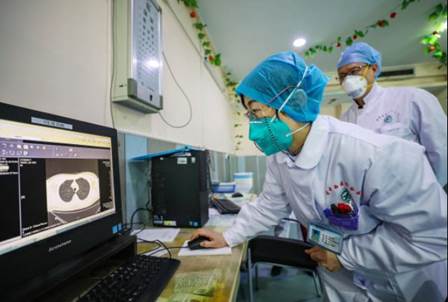
On this day, a merchant from the South China Seafood Market with the same fever, cough, and same lung performance came to the hospital. "In general, the situation of three patients came to the hospital at the same time with the same disease is rare, unless it is an infectious disease." Zhang Jixian tested these patients with influenza A, influenza B, rhinovirus, chlamydia, mycoplasma, syncytial virus, and adenocarcinoma. Results were all negative, which ruled out the flu.
"What kind of disease is this?" Zhang Jixian's suspicion got bigger and bigger. On December 27th, she reported the situation of the four people to the business director Xia Wenguang, the hospital's office and the medical department, and the hospital immediately reported it to Jianghan District Center for Disease Control.
On the two days of December 28 and 29, the clinic treated three more patients who also came from the South China Seafood Market. By this time, there were seven patients with the same symptoms.
"This is a condition we have never seen before. There are four more patients from the South China Seafood Market. This is definitely a problem." Zhang Jixian judged that the seven patients had the same symptoms and the same CT scan of the lungs. Zhang Jixian keenly realized that the situation was wrong, and immediately reported to the hospital, and suggested that the hospital hold a multi-department consultation.
At 1 pm on December 29th, Xia Wenguang, the deputy dean in charge of the hospital, convened 10 experts from the Department of Respiratory Medicine, Infectious Disease, Cardiovascular, ICU, Radiology, Pharmacy, Clinical Examination, Infection, and Medical Services. After discussing with them one by one, the findings are: the imaging is special, the systemic symptoms are obvious, and the laboratory tests have changes in muscle enzymes and liver enzymes. Experts agreed that this situation is indeed abnormal and should be paid great attention. When it was known that there were two other patients with similar medical history in the South China Seafood Market, who were treated at Xiehe Hospital and Tongji Hospital, the hospital immediately decided to report directly to the disease control department of the provincial and municipal health committee..
On Sunday, December 29, the CDCs of the provincial and municipal health committees responded quickly after receiving the report, instructing the Wuhan CDC, Jinyintan Hospital, and Jianghan District CDC to go to the Hubei Province Integrated Chinese and Western Medicine Hospital to conduct epidemiology investigation.
In the evening, experts from the Wuhan Infectious Diseases Designated Admission Hospital came to the Hubei Provincial Hospital of Integrated Traditional Chinese and Western Medicine. They inspected the seven patients one by one and took six of them. Among them, three were mild, three were severe, and one remained in the current hospital and was discharged on January 7 after treatment.
The sooner the epidemic is discovered, the better it is for control. "We feel we are doing the right thing!"
"Zhang Jixian was able to detect the epidemic sharply and report it in a timely manner, and we are not surprised." Said Me Dongai, director of the Medical Examination Center of Zhongnan Hospital of Wuhan University. When studying, Zhang Jixian and Me Dongai were classmates in the same dormitory.
"When she was in school, she studied very well and had a spirit of delving into it." "She is very rigorous." "She has a deep-seated interest in the profession." During the interview, Zhang Jixian's university classmates evaluated her like this.
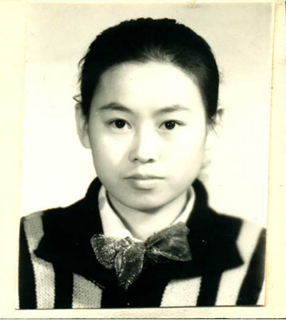
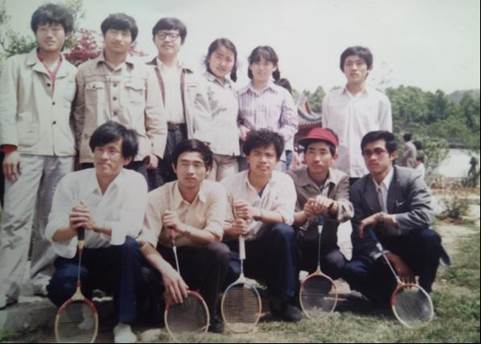
Me Dongai believes that the reason Zhang Jixian was able to detect the epidemic so sensitively, is due to the solid professional skills and medical thinking system developed during school. In addition, she has a diligent and dedicated attitude towards work. "She is a work-minded person, and she always uses every opportunity to analyze difficult illnesses with her classmates, and always remembers her job.
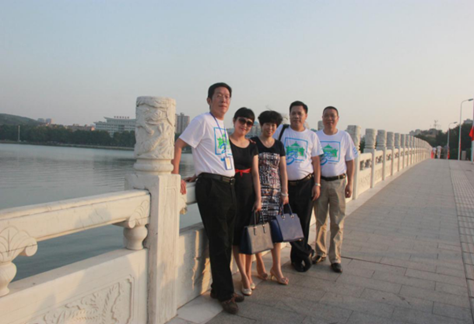
"The SARS epidemic trained my thinking"
Because of her keen insight and rich professional knowledge, Zhang Jixian realized that the situation was wrong. "Is the disease contagious?"
When the first three patients were admitted to the hospital, Zhang Jixian separated a relatively independent place in the respiratory ward and built an isolation ward with nine beds. Zhang Jixian again reported the patient's admission to the hospital.
Since the discovery of the family of three on the 27th, Zhang Jixian has asked all respiratory medical staff to wear masks, asking everyone to take good care of themselves. The hospital approved N95 professional protective masks for their department. "We only wear N95 when we enter that area. Other areas are still general medical masks." Zhang Jixian said.
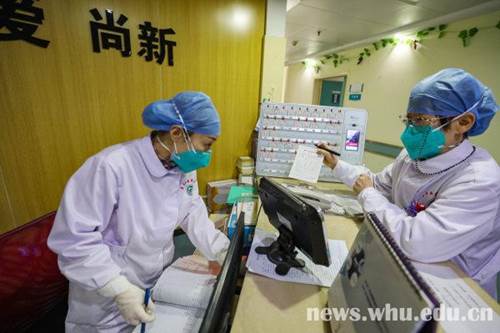
Hubei Provincial Hospital of Integrated Traditional Chinese and Western Medicine is one of the two tertiary hospitals closest to the South China Seafood Market. After six patients were picked up by Jinyintan Hospital, Zhang Jixian's respiratory clinics successively treated similar patients. By New Year's Day, these nine isolation beds were not enough.
With only masks, Zhang Jixian felt it was not enough. At this time, she also instructed the department staff to order 30 sets of fine white canvas overalls as isolation clothing. On December 31, 2019, the work clothes were sent to the hospital. When entering the quarantine area, Zhang Jixian asked everyone to add another layer of protection. "Anyway, we wear one more layer to protect ourselves better." Zhang Jixian said. She also made clear that all medical supplies in the isolation area should not be mixed with others. "In order to avoid secondary infection, medical waste should be treated separately."
Until January 20, Academician Zhong Nanshan clearly pointed out that the new type of coronavirus-infected pneumonia can be transmitted from person to person, and these 30 "protective suits" finally fulfilled their mission. On the same day, the hospital equipped them with Level III protective clothing.
With the development of the epidemic, the number of outpatient of respiratory department in Hubei Provincial Hospital of Integrated Traditional Chinese and Western Medicine has begun to increase, and more and more patients have similar symptoms. Zhang Jixian was worried about cross-infection, and worked with colleagues to help other patients with chronic respiratory diseases to be discharged as soon as possible. Some patients are unwilling to leave the hospital, and the medical staff patiently seek out various reasons to persuade.
Although the protective equipment cannot keep up, the hospital is careful to try its best to protect as much as possible. Due to proper handling and timely reporting, before the large-scale outbreak, Zhang Jixian's department had achieved no cases of infection of medical staff and no cross infection of patients.
Zhang Jixian said that protection from infectious diseases is rooted in SARS. When fighting SARS in 2003, she was 37 years old and was a member of the expert group of Jianghan District. Her daily task was to go to various hospitals to investigate suspects.
"I realized what a public incident and a group incident was from that time." Zhang Jixian said that the doctors had to ask the patient's address and occupation. "This is the thinking that was exercised during the SARS period."
"We must win the fight against novel coronavirus epidemic "
During the New Year's Day in 2020, the number of outpatients in the respiratory department started to increase sharply, from about 100 people a day to about 230 people a day, and more and more patients have similar conditions.
On January 17, the hospital transformed the first floor of the inpatient department into a dedicated isolation ward. On January 30, the hospital was designated as the third batch of new coronavirus-infected pneumonia treatment sites. The hospital was rebuilt with 6 wards and 160 beds set up to take care of patients with severe pneumonia infected by the new coronavirus.
Zhang Jixian worked "like a firefighter", and fought in the place closest to the epidemic. She told reporters that the hospital has adopted a three-level responsibility system. As the director of respiratory medicine, she is responsible for critical patients. When other colleagues are too busy, she will take the initiative to step up.
The gradual spread of the epidemic is testing numerous medical staff. "From the end of December to the present, we have hardly ever rested. Every day from the time we open our eyes to the dark, there is no time concept. We fall asleep after work." Zhang Jixian said.
It is understood that it takes half an hour for the medical staff to take off the protective clothing only once, there are 27 steps, and 12 times of hand washing are needed. Protective clothing is airtight, and N95 masks are worn. After a few hours, all of them are soaked. In order to reduce the number of visits to the toilet, medical staff do not eat or drink for almost a day. Because the N95 mask fits tightly, many people develop pressure ulcers on the bridge of the nose and under the eyes.
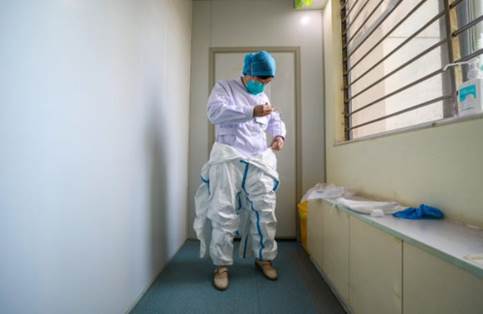
On February 8th, the Integrated Chinese and Western Medicine Hospital received a letter with "Zhang Jixian" written on the envelope in immature handwriting. This letter comes from a middle school student at Wuyang Middle School in Guangzhou. "The company can open late, we can postpone school, but you open the door and treat the patients with intimate care. Regardless of the danger, you rush to the battlefield one after another ... Wuhan, come on!" Five hundred yuan.
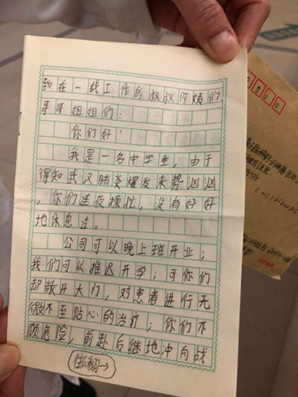
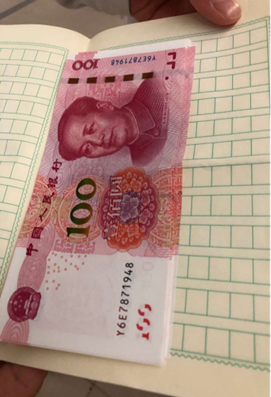
"When I saw this letter, I felt very warm." Zhang Jixian said, "Thank you, this child, because of the support of people from all over the country, we are very excited and very heartwarming. We must continue to work to treat more patient. "
